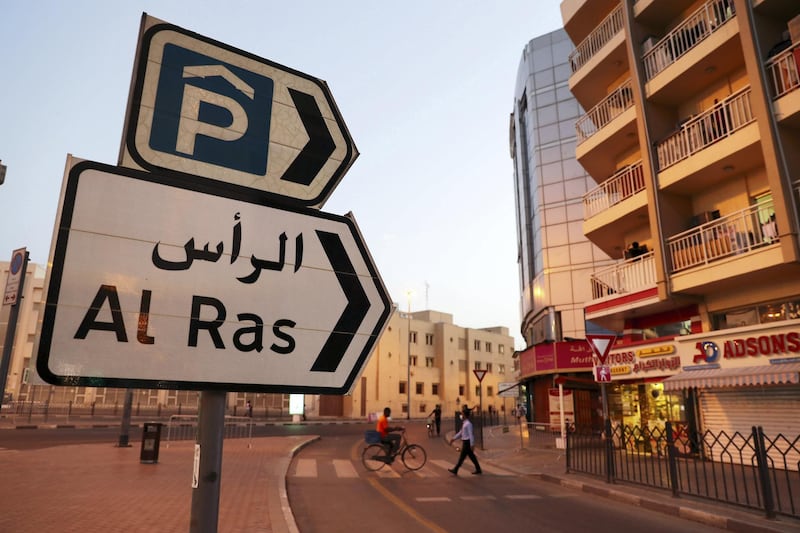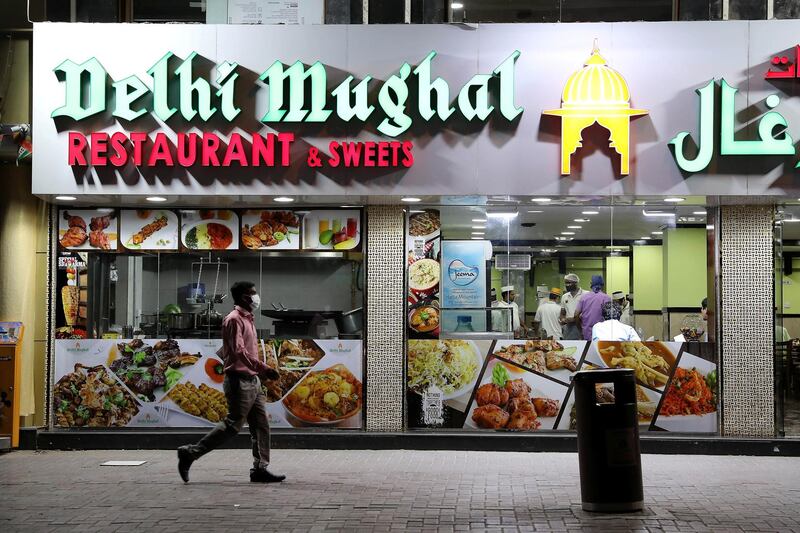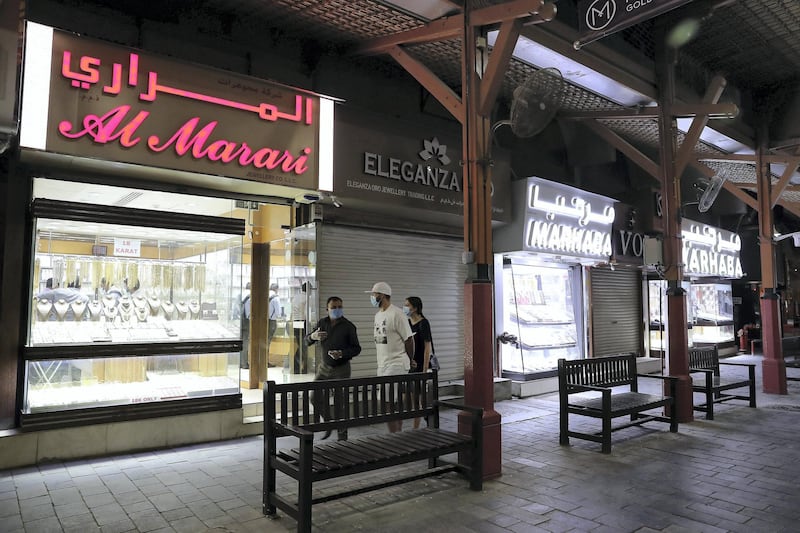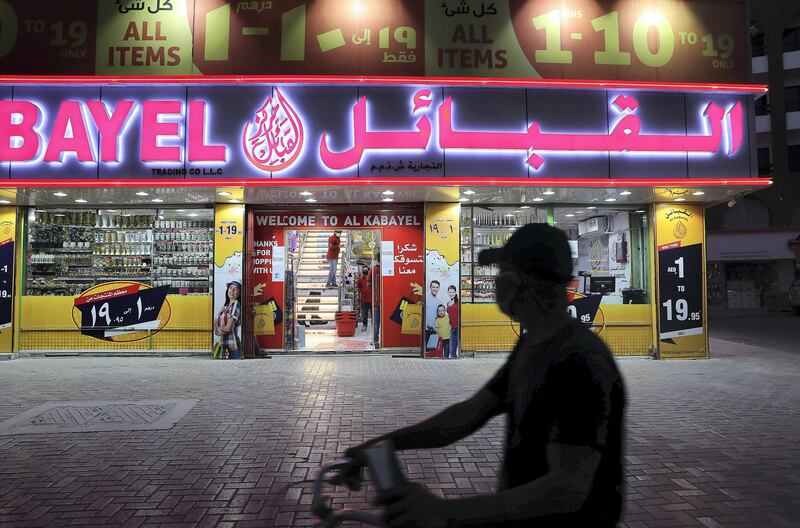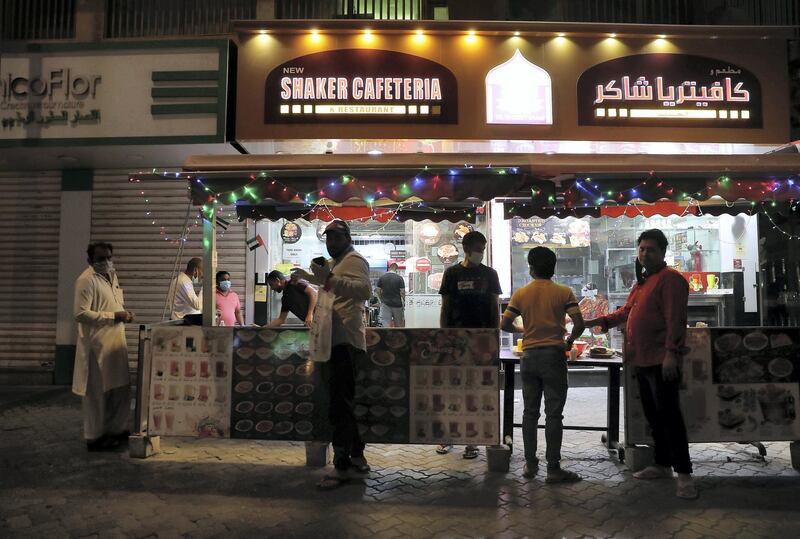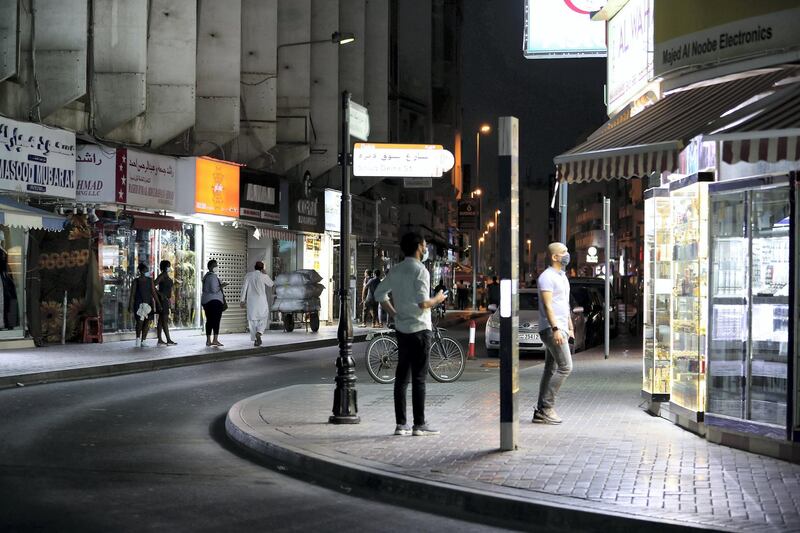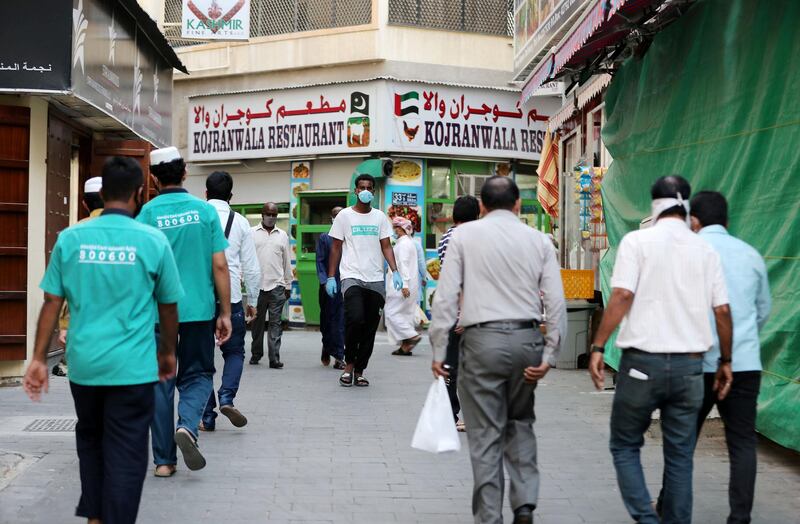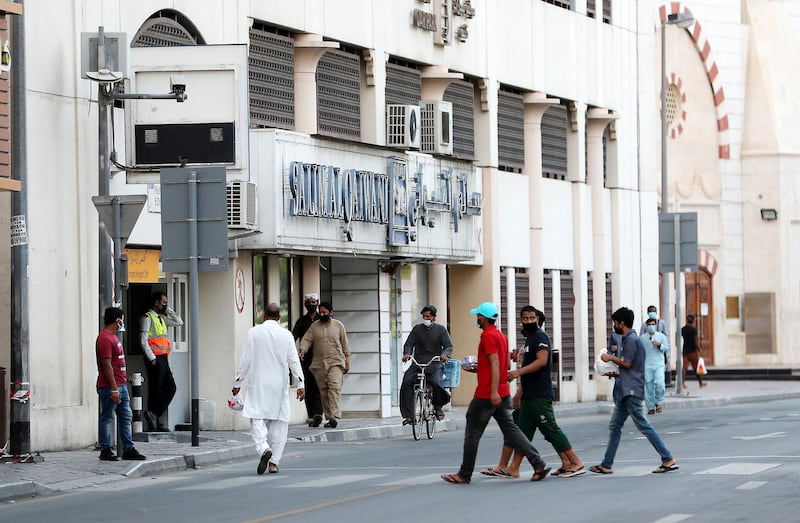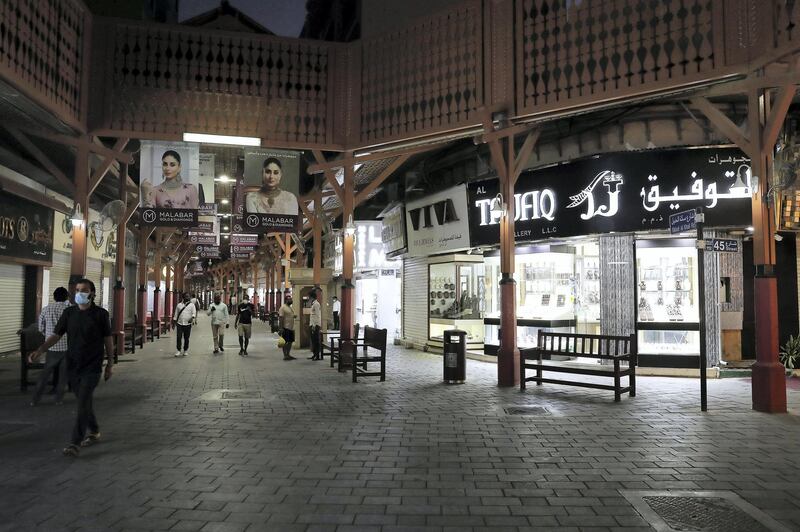Latest: How doctors drove down cases in Dubai's old town
Barricades shutting off two densely populated districts of Dubai were lifted on Sunday night allowing residents to leave their homes for the first time in almost a month.
Police and government officials waved through delivery vans and allowed people onto the streets of Al Ras and Naif, on the banks of Dubai Creek.
The district was closed and residents ordered to stay home for 24 hours per day on March 31 due to concerns over potential cases in the neighbourhoods.
About 6,000 people were tested over the past month. Officials were yet to state how many were found positive but said there had been no new cases in two days.
Dubai's crisis and disaster committee "thanked residents of the two areas for their understanding and cooperation... and frontline workers who worked around-the-clock to fight the pandemic".
Thousands of residents were seen on the streets cheering as a convoy of police vehicles and taxis passed through, some playing the national anthem, after dusk.
Shishangia Ashvin Kumar, manager of a jewellery store and an Al Ras resident, said he remained cautious and would avoid going out unless necessary. He lives with his wife and daughter, 12.
“Even if there is no ban, I worry that someone with coronavirus but with no symptoms will pass it to me and I will give it to my daughter, as her immunity may be low,” he said.
The two areas are now subject to the same restrictions on the rest of the city, allowing people to leave home to exercise and shop for essentials but ensure they are home between 10pm and 6am.
He said it would take time to bring in new safety checks, such as testing the temperature of customers and keeping a two-metre distance between them in small shops.
“There are no tourists now and they are our main customers,” Mr Kumar said.
“During Ramadan and from May to August, business is slow anyway.”
Many people with homes in the zone said even if the stay-home measures were lifted they planned to stay indoors for the safety of their families.
There has been a partial lifting of restrictions across the UAE and in Dubai residents no longer require police permits for trips to the grocery store or pharmacy.
A few jewellery outlets opened for sanitisation on Sunday after a notice from a trade group that shops in Al Ras, Deira Gold Souq and Naif could reopen. The Dubai Gold and Jewellery Group said restrictions would be eased but stores must be cleaned and disinfected before reopening.
The quarantined neighbourhood spans the popular gold souq and parts of the Dubai Creek, with residential buildings, and cosmetics and garment shops throughout the winding alleys.
The district has blocks with buildings in which 15 to 20 workers share apartments.
Tests have been conducted across Al Ras and other crowded areas in the UAE to identify people with severe symptoms of Covid-19 and move them to isolation centres. The UAE recorded 536 new coronavirus cases on Sunday, bringing the country's total to 10,349.
The Dubai Metro resumed services on Sunday but Al Ras, Palm Deira and Baniyas Square stations on the Green Line remain shut.
Donga Chaman has not left his apartment for more than a month. Until Sunday, one entrance of his building that opens to the main road leading to Al Ras station and Dubai Creek was closed.
Only the door leading to the internal roads of Al Ras could be used.
“I haven’t stepped out for a long time,” said Mr Chaman, 59, who runs a travel business in the gold souq.
Even if Al Ras were given the all-clear, his wife, son and daughter-in-law planned to stay at home.
“We want to be careful,” Mr Chaman said.
“All over the world people are taking precautions. So should we, so that we don’t have a problem later.”
Tests were conducted in an apartment block down the lane but residents in his building have not been tested.
The family relies on deliveries from grocery shops within Al Ras but has had trouble with water delivered by a regular supplier.
“I have a Dh1,000 voucher I cannot use and have to keep buying 5-litre bottles from the grocery store,” Mr Chaman said.
“That is one problem I face but otherwise this level of safety is needed.”


